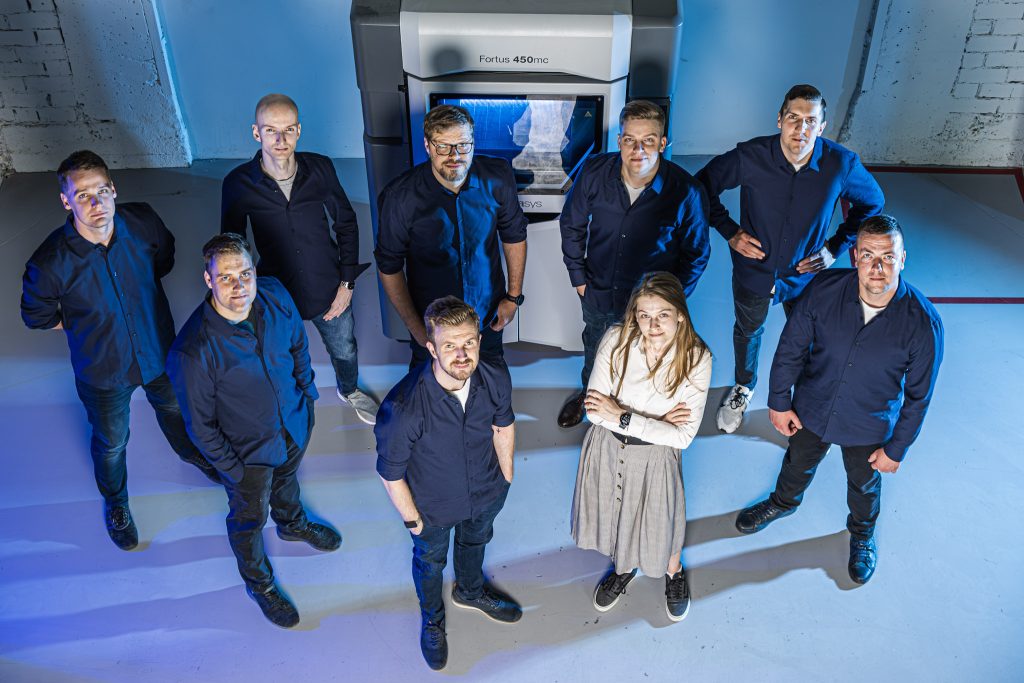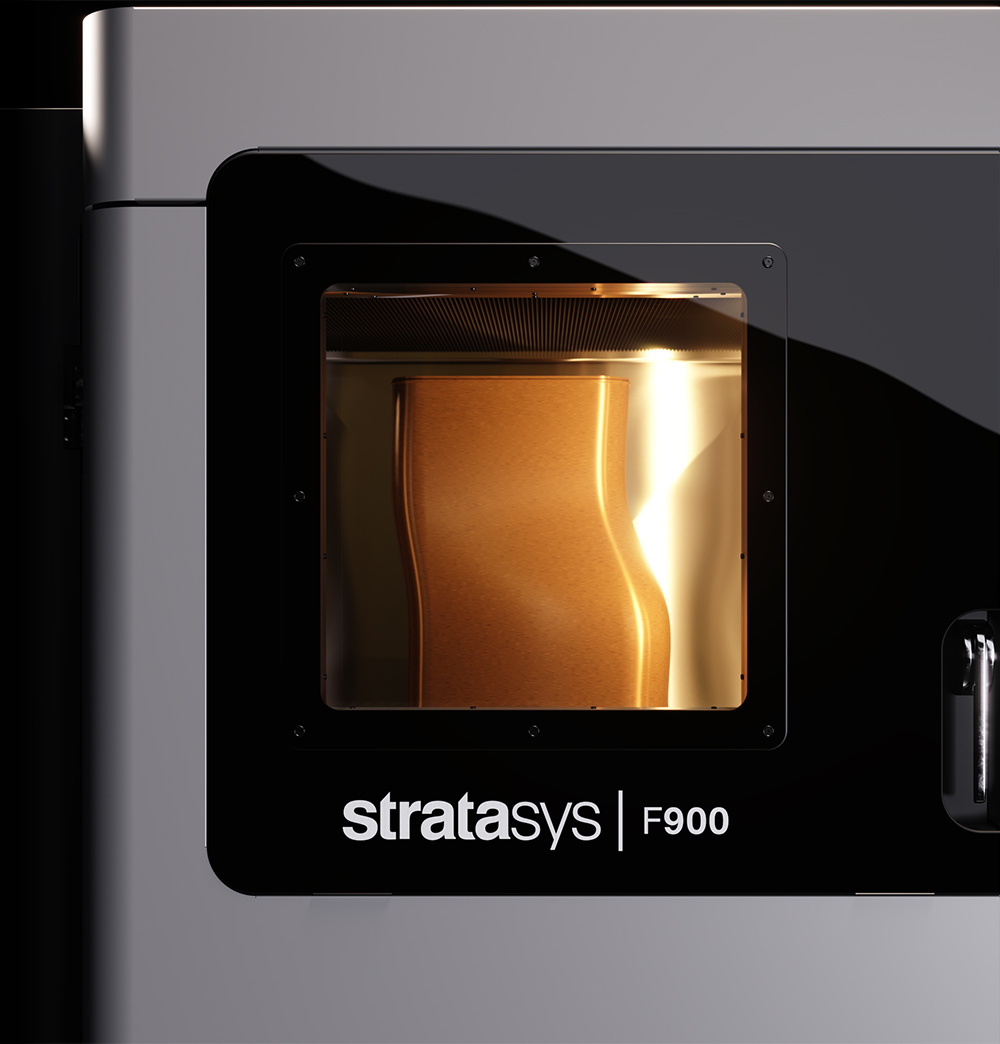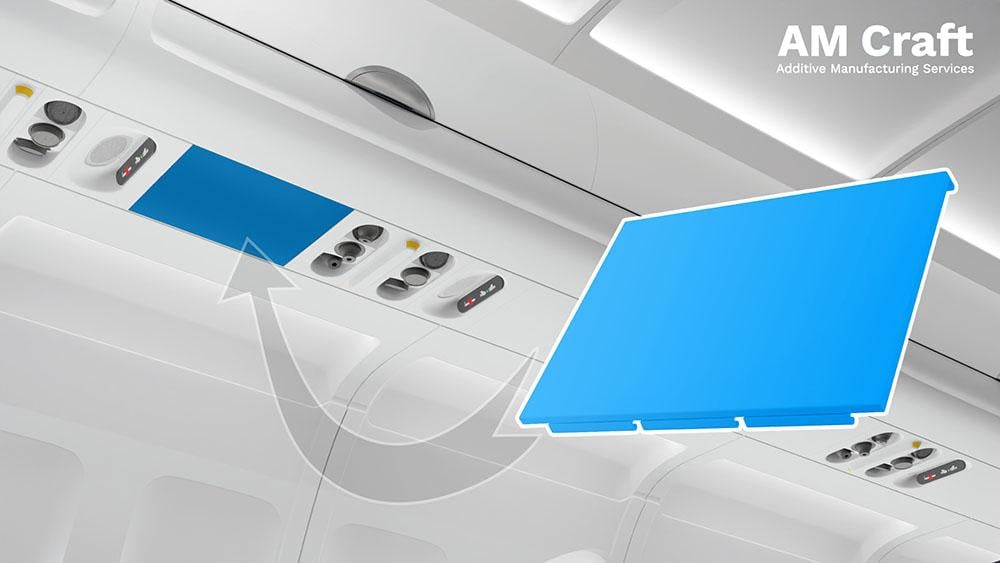Riga-based aviation manufacturing firm AM Craft has raised €600,000 in a pre-seed funding round led by Change Ventures, with participation from BadIdeas.Fund.
AM Craft leverages industrial polymer 3D printers, design expertise, airworthiness certification knowledge, and a distributed production network to deliver an end-to-end service to aviation customers.
An EASA-authorized Part 21G aviation supplier, it specializes in the production of aircraft interior components for the likes of airBaltic, euroAtlantic Airways and Zim Aircraft Seating. Certified parts produced by AM Craft include components for flight decks, monuments and galleys, overhead bins and seats.
The company will use this new pre-seed capital to expand the adoption of its 3D printed parts in the aviation industry and support the growth of its Dubai network partner manufacturer hub. Through this hub, launched in September 2023, the firm’s manufacturing partner Paradigm 3D produces certified parts for customers in the Middle East.
“Together with our manufacturing partner, Paradigm 3D, we will be able to produce certified parts exactly where they are needed by our customers,” commented AM Craft’s Co-founder and Chief Commercial Officer Janis Jatneiks.
“AM Craft has enabled Paradigm 3D to become the first facility in the Middle East capable of producing 3D-printed parts that adhere to stringent aerospace-specific regulations and can be delivered with an EASA Part 21G airworthiness certificate.”
Looking to the future, AM Craft plans to qualify new manufacturing locations in central Europe, Southeast Asia and the USA. “Dubai is just the first step in the journey to build a global network,” added Andris K. Berzins, a partner at Change Ventures.

3D printing: the future of aircraft interiors?
According to Jatneiks and fellow Co-founder Didzis Dejus, 3D printing solves key problems currently faced by the commercial aviation industry. Airlines and aircraft maintainers don’t typically manufacture or certify parts themselves. Additionally, legacy 3D printing companies have largely focused on delivering additive manufacturing technology to manufacturers.
As a result, while 3D printing offers potential for airline and aircraft maintenance, there have been limited means to adopt the technology within the existing supply chain. AM Craft claims to overcome this problem via its network manufacturing model.
Through this approach, the service provider can 3D print and deliver certified parts where they are needed. The company has also established a growing library of pre-certified parts. Here, airliners can source common components used across different aircraft and cabin models.
“The vision is to enable low-cost, rapid sourcing of a large library of parts, delivered sustainably by local certified manufacturing hubs around the world, thereby massively increasing the use of additive manufacturing in spare part sourcing and eventually also OEM manufacturing,” explained Dejus, who is also AM Craft’s CEO. “In addition, the wider adoption of 3D printing should enable airlines to accelerate sustainability goals that the industry is pursuing.”
To help achieve these goals, AM Craft boasts a suite of over 60 industrial 3D printers in its manufacturing network. In particular, the firm is a keen adopter of FDM systems from 3D printer manufacturer Stratasys.
In 2020, AM Craft purchased four of the company’s F900 3D printers, which added to the four Fortus F450mc systems it already possessed. This investment solidified AM Craft as one of the largest independent aerospace-focused 3D printing service providers in Europe, the Middle East, and Africa (EMEA).

When combined with Stratasys’ aerospace-grade materials such as ULTEM 9085 resin, the F900 is capable of producing a wide range of aircraft interior parts that meet stringent aviation regulations.
For instance, the flame-retardant, high-performance ULTEM 9085 resin fulfills the strict flame, smoke, and toxicity (FST) aerospace criteria. The addition of the F900 3D printers also enabled the firm to expand its production capabilities, allowing it to fabricate a new range of aircraft components such as aircraft seating, paneling, and ducting.
Through its on-demand manufacturing offering, AM Craft continues to attract interest from notable customers in the commercial aviation space. This month, it was announced that Finnair is contracting AM Craft to 3D print aircraft interior parts that will update the passenger units in its Airbus A320 cabins.
Through this collaboration, lightweight, 3D printed blanking panels will replace heavy and outdated, flip-down video monitors. The company will deliver more than 300 panels to upgrade the cabins of 17 A320s in Finnair’s fleet. The 3D printed blanking panels have also been added to AM Craft’s digital catalogs. As such, the components are available to any airline company looking to upgrade its A320 aircraft.

Commercial aviation adopts additive manufacturing
Additive manufacturing is a growing technology within the commercial aviation industry. Senior Aerospace BWT, a UK-based manufacturer of air distribution systems for the aerospace sector, leverages its in-house Stratasys systems to 3D print aircraft interior parts for its customers.
In 2021, it was announced that the company had acquired two Fortus 450mc 3D printers from Stratasys reseller Tri-Tech 3D. These industrial FDM 3D printers have been used to produce a range of aerospace and aviation components for use in low-pressure air ducting systems and air handling systems for aircraft interiors.
Since adopting FDM 3D printing in place of conventionally sourced aluminum, Senior Aerospace BWT has reportedly observed weight, cost, and lead time savings of up to 75% for certain parts and small order quantities.
Elsewhere, in-flight entertainment systems manufacturer Cabin Management Solutions (CMS) is using Markforged 3D printers to produce FAA-compliant parts for luxury aircraft.
Having adopted Markforged X7 carbon fiber 3D printers, the company has printed numerous end-use cabin interior upgrades and spare parts. According to CSM, the integration of Markforged 3D printers into its production workflow has enabled it to deliver notable cost and time savings to its customers.
Want to help select the winners of the 2024 3D Printing Industry Awards? Join the Expert Committee today.
What does the future of 3D printing hold?
What near-term 3D printing trends have been highlighted by industry experts?
Subscribe to the 3D Printing Industry newsletter to keep up to date with the latest 3D printing news.
You can also follow us on Twitter, like our Facebook page, and subscribe to the 3D Printing Industry Youtube channel to access more exclusive content.
Feature image shows the AM Craft team. Photo via AM Craft.


